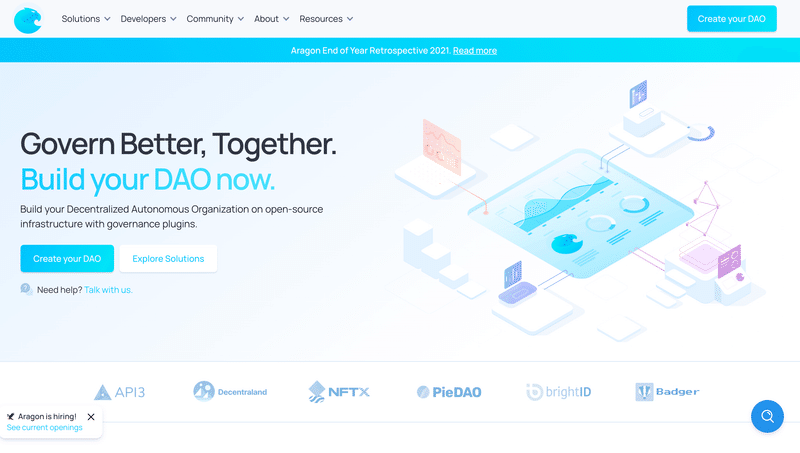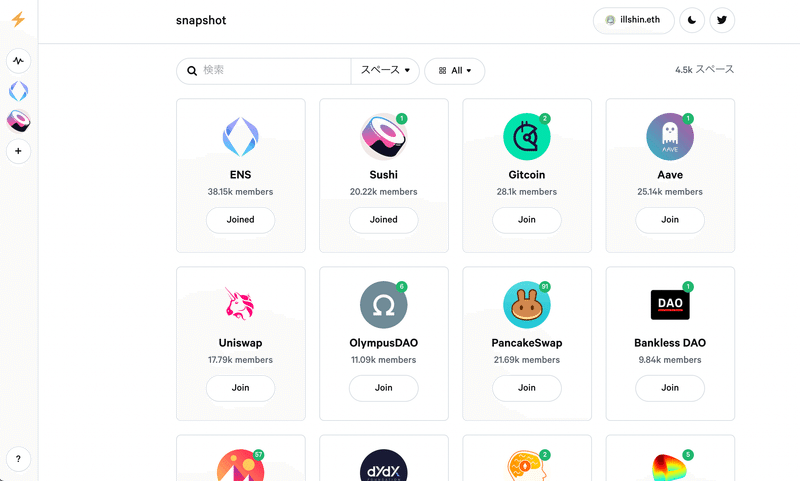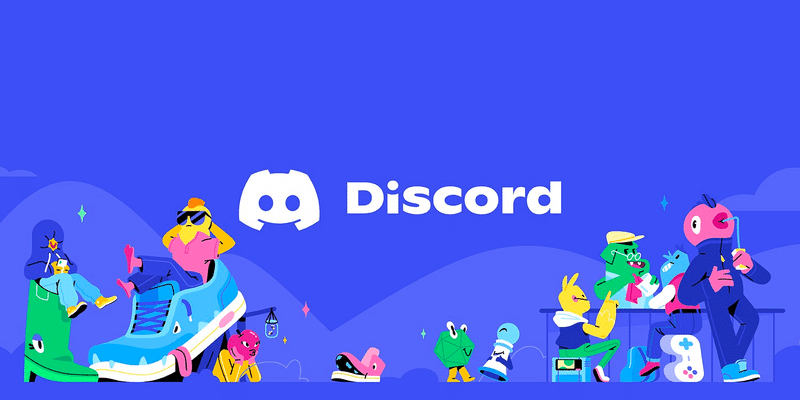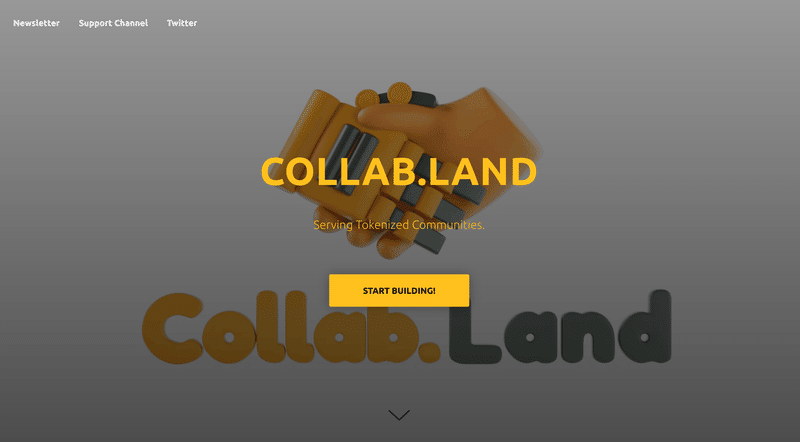
In Part 1, we introduced typical DAO for each genre.
This time, I'd like to introduce what tools are available to manage these DAO.
Tools for operating DAO, from start-up to operation
- Setting up DAO
- Managing DAO treasury
- Governance management of DAO
- Communication of DAO
- Tools for managing compensation payments to DAO members
- Tools to restrict access to DAO to individual users
DAO is a pervasive world, and we embrace the Metaverse
- Meta (VR) and Niantic (AR) aim to create their Metaverse.
Tools for operating DAO, from start-up to operation
The world is moving quickly, and there are already many tools that specialize in DAO operations.
We will introduce you to some of these tools created based on a completely different philosophy than web2products.
Setting up DAO

When you decide to start DAO, you first need to think about who you will distribute the tokens to and how many stakeholders you create.
Here is a tool that provides token issuance and distribution.
There are already several no-code tools that make it easy to set up DAO, such as DAO version of Shopify.
Aragon
Colony
Coinvise
thirdweb
Orca
DAOstack
These are just a few of the existing products, and more will be added in the future. Other specialized products include the following.Syndicate: Easy to launch investment DAO
2. Treasury management for DAO
 Financial management is essential for managing the funds collected from stakeholders. Let's start by considering the following tools.
Financial management is essential for managing the funds collected from stakeholders. Let's start by considering the following tools.JuiceBox: Community funded. It is the same tool that was used in Constitution DAO.
3. Governance management of DAO

How and when will the collected funds be used? Which functions should be developed with priority? The following are some of the most popular governance management tools for DAO.
Snapshot: Community voting. It seems to be the standard tool most often seen in DAO.
4. Communication of DAO

It is where members of DAO community communicate with each other. Currently, Discord is the only choice for this, and it is expected to be replaced by web3 companies in the future.
As you know, Discord is a web2 company that started as a community tool for gamers, and even though it is the hub of many web3 projects, it still doesn't have built-in features such as token management.
There are examples of plugins such as Collab .land, which will be discussed later, but the introduction of wallets is currently causing a backlash from the gamer community, which is the primary user base for this tool.
Since almost all DAO use Discord for communication, a plugin has excellent potential.
Twitter is used for open communication and marketing channels, and Telegram is used for 1:1 interactions such as customer support.
5. Tools for managing compensation payments to DAO members
6. Tools to restrict access to DAO to individual users.

The bigger DAO, the more it has a hierarchy for each stakeholder to manage its operations, such as a Discotd server that only allows users with certain NFT or a channel that only allows core contributors who hold a certain number of tokens.
Tools for optimizing these operations are also widely used, so it's worth keeping them in mind.
DAO is a pervasive world, and we embrace the Metaverse
We have introduced why DAO is attracting attention and the typical DAO and its surrounding tools in early 2022.
In the future, people will no longer work for a single company but will live their lives while contributing to multiple DAO that share their mission and allow them to utilize their skills at the same time.
DAO is global and token native from Day 1, and there is no permission to join or contribute to them, no identity, no employment contract, no job interview.
It's a paradigm shift that will overturn the traditional way of doing business.

When you wake up in the morning, you can check the task list by the core contributors of DAO to which you belong, assign yourself to a task that you find interesting, deliver it. If there are no problems, you will immediately receive a token in your wallet.
I think this is especially easy to imagine for people who work on the side, as freelancers, or as gig workers for Uber or Timey.
I'm convinced that this decentralized, anonymous, transparent, and trust-free way of working will be the protocol for the coming metaverse era and the new form of output to the world.
Currently, DAO is limited to work that can be completed digitally, such as code, design, video delivery, or community facilitation.
To have a clear image of this, it is necessary to explain the general situation of the Metaverse.
Meta, a VR-oriented company, and Niantic, an AR-oriented company, is aiming to create their Metaverse.
 https://www.theverge.com/2021/11/23/22798523/niantic-fold-ar-metaverse-mobile-game-bitcoin-earning
https://www.theverge.com/2021/11/23/22798523/niantic-fold-ar-metaverse-mobile-game-bitcoin-earningIt is said that overseas, Meta is often compared to Darth Vader and Niantic to Luke in the Star Wars analogy (Niantic is the developer of Pokémon GO and Ingress).
Because the conflict between Meta, which is making money by trapping users in a virtual space and advertising, and Niantic, which is trying to improve the experience of the natural world with virtual technology, is a hot topic in the overseas metaverse world right now, and, John Hanke, CEO of Niantic, has sounded the alarm that the Metaverse is a dystopian nightmare.
John Hanke, CEO of Niantic, has warned that the Metaverse is a dystopian nightmare.
From this point of view, it is premature to look at the Metaverse from the perspective of a virtual space like Fortnite or Facebook Horizon.
As a side note, John Hanke is the developer of Google Earth and the creator of Google Maps. From this point of view, we can see why Niantic is the dark horse of the metaverse industry.
Niantic's AR development platform, Lightship, just launched in November 2021, and Niantic will be marketing it hard to compete with the dystopia that Meta is trying to create.
The Lightship technology is still in its infancy and can be in the early stages of the launch of the AppStore, which only had simple applications.
The Metaverse, which can be described as the "Internet in 3D," will take some time to take root due to problems with machines and communication specifications.
- Never-ending, eternal: no resets, pauses, or ends.
- Simultaneous and live: Although there are pre-scheduled events, anyone can experience what happens in the world of the Metaverse live, in real-time, just like in the real world.
- The Unlimited number of concurrent users: Everyone can be part of the Metaverse and participate in a particular event, place, or activity together and simultaneously.
- Have an economic ecosystem: Individuals and companies can create "value" that others recognize and be rewarded for their "work."
- Connectedness to physical reality: The experience must span both digital and physical worlds or private and public, open and closed platforms.
- Interoperability: Data, digital items, assets, and content (e.g., a skin purchased in one game can be used in another game).
- Reproducibility of content and experiences: Consists of "content" or "experiences" provided by individuals, groups, or companies.
There is a world line where the same objects (digital twin) as in reality are also there virtually and fully synchronized with the real.
Even now, we are constantly connected to physical data online through AppleWatch and smartphones. Still, the metaverse world is an extension of that.
Whether online or offline, all of our daily actions are recorded in the blockchain, and we will be able to accumulate and own (personally manage) assets such as tokens.
It will be possible to earn and own assets such as tokens.
Everyone will have the opportunity to contribute value to the global economy by using the data they hold, whether real or digital, as their ticket.
I mentioned earlier that Lightship was like AppSore back in 2008.
Remember when it was bowling, field hockey, piano, and even an app that made your iPhone look like a beer mug? With the development of blockchain technology, we can expect a fantastic evolution of content companies like Meta and Niantic, silicon companies like NVIDIA and Qualcomm, and hardware companies like Apple and MagicLeap (Meta is also holding back hardware with Quest VR).
The current junction of blockchain and Metaverse is still at the level of buying a sandbox or decentralized land NFT, but virtual worlds will be created at an exponential rate.
In a future where living in such a metaverse space will be the norm, will the best way to work be like a traditional stock company, or will it be more fluid and flexible like DAO? It will be a gradation, and it will be possible to have it both ways, but the answer seems obvious to me.
I talk more about this in the podcast.
DAO will rule the world
Marc Andreessen of a16z, an early investor in many web3 companies, said, "Software is ruling The World," and I, as a result of this, declare that the next decade will be "DAO will rule the world."
DAO seems to be the best solution so far as an organizational form in a world that is becoming more liquid and the final form of a stock company.
There is a saying that "a product is a product of chance, a team is a product of necessity," and I feel this saying has more weight in DAO, where the community itself can be considered a product.
People's work and organizations have switched to a division of labor.
The economy has developed as a result of a collaboration that takes advantage of each person's expertise, but this has been tied to a region or industry.
It is not a revolution of the Internet, but a new "stock company" form that has existed for about 400 years.
The invention of the stock company, a mechanism to decentralize financial risk for socially meaningful (and financially rewarding) challenges, is coincidentally similar to the blockchain, which is based on the concept of decentralization.





